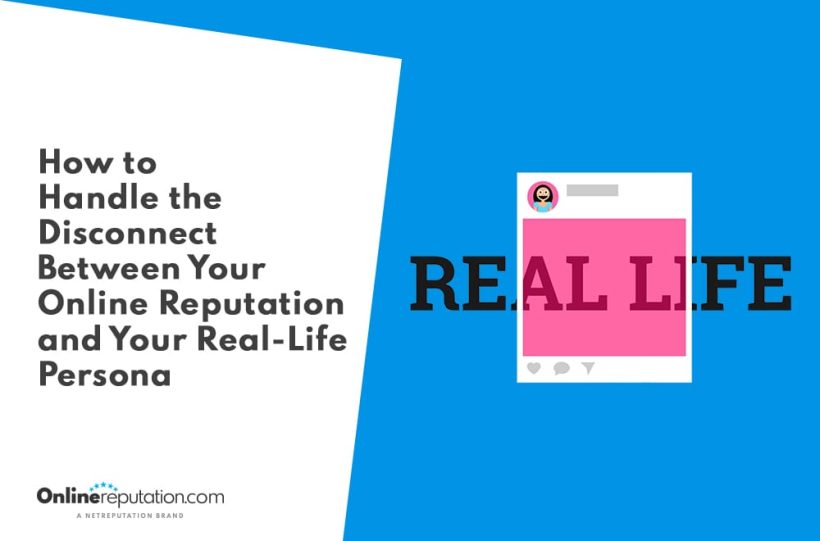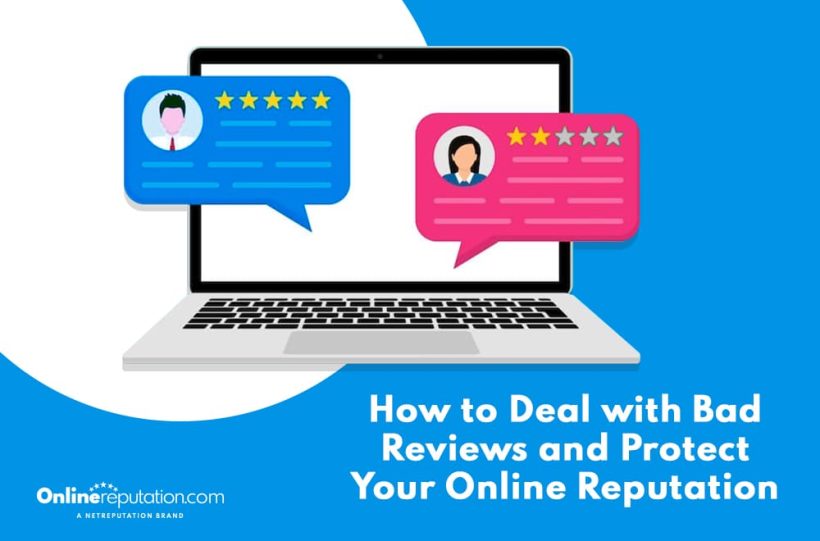
Our online presence plays a significant role in shaping how we’re perceived in real life. But what happens when there’s a disconnect between the image we project online and who we truly are? This gap between our online reputation and real-life persona can have profound implications for our personal and professional lives.
What Is Online Reputation?
Online reputation refers to how you are perceived on the internet—how others view your persona based on your posts, comments, and interactions across various platforms. It encompasses your digital footprint and the collective perception formed by your activities on social media accounts, review sites, news sites, and other websites. Online reputation management involves curating this image to reflect your true self positively. It plays a crucial role in shaping your relationships and can significantly impact your self-esteem, mental well-being, and even career opportunities.
An authentic online presence can lead to more meaningful connections, and investing in reputation management can help you maintain better emotional health. Support services like counseling and mindfulness practices can also be beneficial in navigating the emotional impact of online perception. By aligning your online persona with your real-life values, you can enhance your brand image and foster a great reputation both online and offline.
How Is Online Reputation Different From Your Real-Life Persona?
The key difference between online reputation and real-life persona lies in how curated online interactions are compared to the more genuine nature of in-person relationships. While your online persona might reflect a more polished version of yourself, your real-life persona is shaped by your values, social interactions, and natural self-expression. This disparity can create a disconnect that affects both emotional safety and self-esteem in real life and online.
Your online reputation is often influenced by the content you share on various social media platforms, the comments you leave on public forums, and the way you engage with online communities. In contrast, your real-life persona is more spontaneous and less controlled, shaped by face-to-face interactions and personal experiences. This difference can lead to a misalignment that impacts your relationships and overall well-being.
Why Is There a Disconnect Between Online Reputation and Real-Life Persona?
Several factors contribute to the gap between online reputation and real-life persona. These include social media pressure, perception bias, and inconsistent personal branding.
Many people feel compelled to project an image online that doesn’t fully reflect who they are, driven by the desire for approval and societal expectations. This misalignment can cause anxiety and personal conflict, especially when the online persona doesn’t match their real-life interactions. Understanding these factors can help you bridge the gap and create a more authentic online presence.
Social Media Pressure
Social media has a major influence on the disconnect between online reputation and real-life persona. People often feel pressured to post content that meets others’ expectations, leading to anxiety and a distorted sense of self. Metrics like likes and comments can overshadow meaningful connections, contributing to feelings of inadequacy, particularly among younger users still shaping their identities.
To reduce the impact of social media pressure, consider these strategies:
- Limit screen time: Set specific time limits for social media to regain focus and reduce overexposure.
- Curate your feed: Unfollow or mute accounts that make you feel anxious or inadequate.
- Engage mindfully: Focus on authentic communication and positive interactions over superficial posts.
By addressing these pressures, you can foster a healthier online environment and maintain an authentic self-representation. Encouraging brand advocacy and promoting positive comments can also help you build a supportive online community.
Perception Bias
Perception bias occurs when people interpret online content through their own lenses, leading to distorted views of both themselves and others. Comparing your life to the often idealized lives of others online can result in feelings of inadequacy. This bias can skew your understanding of reality and impact your mental health.
Recognizing the influence of perception bias is important for mental well-being. To combat its effects:
- Be aware of your biases and how they shape your view of others.
- Understand that what you see online is often a curated version of reality.
- Encourage open, candid conversations about online experiences to reduce feelings of isolation.
By acknowledging perception bias, you can foster a more realistic view of online interactions and enhance your emotional safety.
Inconsistent Personal Branding
Inconsistent personal branding can create confusion and harm your authenticity. When your online image doesn’t align with your real-life values, it can lead to disingenuous interactions and a loss of trust. This inconsistency can also affect your professional reputation and limit career opportunities.
To address this, engage in continuous self-reflection and build a brand that is consistent across all platforms. This will help you connect more authentically with your audience and create a stronger, more unified identity. By aligning your online persona with your true self, you can enhance your brand image and foster trust among your audience.
What Are the Consequences of a Disconnect Between Online Reputation and Real-Life Persona?
The gap between your online persona and real-life identity can have significant consequences, impacting both your personal and professional life. These consequences may include damaged relationships, missed opportunities, and negative effects on your mental health.
Damaged Relationships
When your online presence doesn’t align with your true self, it can cause feelings of betrayal among friends, family, and colleagues. This disconnect can strain relationships, as others may feel misled by the curated persona you present online. Trust is a crucial component of any relationship, and a misaligned online image can erode this trust.
For example:
- Friendships: Trust can erode if your online persona seems inauthentic.
- Family relationships: Misleading online images can cause confusion or division within families.
- Professional connections: Your career may suffer if your online image conflicts with your true character.
To maintain strong relationships, it’s crucial to cultivate an authentic self that reflects your true values, both online and offline. Engaging in open communication and fostering trust can help you build more meaningful connections.
Loss of Opportunities
The disconnect between your online and real-life selves can also affect professional opportunities. If your online presence doesn’t accurately reflect who you are, it may lead to missed connections, hinder networking efforts, and limit career growth. Employers and potential clients often research candidates online, and a misaligned online image can impact their perception of your capabilities.
To avoid this, ensure that your online persona aligns with your real-life values and strengths. This will help you attract the right professional opportunities and foster genuine collaborations. By maintaining a consistent personal brand, you can enhance your career prospects and build a strong professional reputation.
Negative Impact on Mental Health
Maintaining an inauthentic online persona can take a toll on your mental health, leading to increased anxiety, lowered self-esteem, and emotional distress. Constantly curating your image to fit external expectations can cause you to feel disconnected from your true self. This disconnection can impact your overall well-being and lead to feelings of isolation.
To manage these feelings, engage in mindfulness practices and seek support when needed. Building an authentic online presence can alleviate anxiety and improve your overall mental well-being. By fostering a positive online community and encouraging brand advocacy, you can create a supportive environment that enhances your mental health.
How to Align Your Online Reputation With Your Real-Life Persona
Aligning your online reputation with your real-life persona requires a well-thought-out online reputation management strategy. Start by auditing your online presence, reflecting on your values, and making necessary adjustments to ensure consistency and authenticity.
Audit Your Online Presence
Begin by thoroughly reviewing your content across various social media platforms and other online channels to ensure it accurately reflects your true self. This process helps you identify areas where improvements or adjustments are needed to enhance your brand’s online reputation. By being mindful of your digital footprint, you can protect your emotional well-being and ensure your online image aligns with your real-life persona.
Here are some steps for conducting an effective audit:
- Assess content: Review your posts and interactions to ensure they represent your desired brand image.
- Evaluate interactions: Consider the tone and nature of your engagements. Are your interactions positive and supportive of your personal brand?
- Practice mindfulness: Incorporate techniques like meditation to process any negative emotions tied to your online presence and maintain a healthy mental state.
Create a Consistent Personal Brand
Your personal brand should be a reflection of your core values and authentic self. Consistency across all platforms will help build trust and foster deeper connections with your audience, enhancing your business’s online reputation.
To build a consistent personal brand:
- Define core values: Identify what matters most to you and let these guide your online reputation management efforts.
- Create engaging content: Share stories and insights that resonate with your audience, fostering emotional connections and encouraging brand advocacy.
- Leverage multiple platforms: Ensure that your message is consistent across different channels, enhancing your presence on social media accounts and review sites.
- Seek feedback: Regularly engage with your audience to refine your approach and ensure your personal brand remains aligned with your values.
Be Authentic and Transparent
Authenticity is key to building a strong online presence. By being open and transparent in your online interactions, you’ll foster trust and create deeper, more meaningful connections.
To practice authenticity:
- Be open: Share your true thoughts and experiences to connect with others genuinely.
- Engage honestly: Focus on transparent communication rather than curating an overly polished image.
- Promote emotional safety: Encourage open dialogue and mutual respect in your online community to foster a supportive environment.
Monitor and Respond to Feedback
Engage with feedback to maintain a positive online reputation. By responding thoughtfully to comments, you demonstrate that you value others’ input and are committed to authenticity.
Monitor your online presence regularly, taking note of any trends in feedback. Use this information to refine your online approach and foster more meaningful connections, enhancing your brand’s online reputation.
Best Practices for Maintaining a Positive Online Reputation
To maintain a positive online reputation, follow these best practices:
- Be mindful of your behavior: Reflect on your online actions and ensure they align with your personal values and desired brand image.
- Engage positively: Focus on contributing to meaningful conversations and promoting positive content across various social media platforms.
- Utilize privacy settings: Protect your privacy to maintain control over your online presence and safeguard your emotional safety.
- Seek professional help if needed: If managing your online reputation becomes overwhelming, don’t hesitate to reach out for support from mental health professionals or reputation management experts.
By following these steps, you’ll create an online reputation that aligns with your true self, fostering stronger, more genuine relationships both online and offline.
You might also like
New Year, Same Google Results? Here’s How to Change the Narrative in 2025
Our online presence plays a significant role in shaping how we’re perceived in real life. But what happens when there’s …
